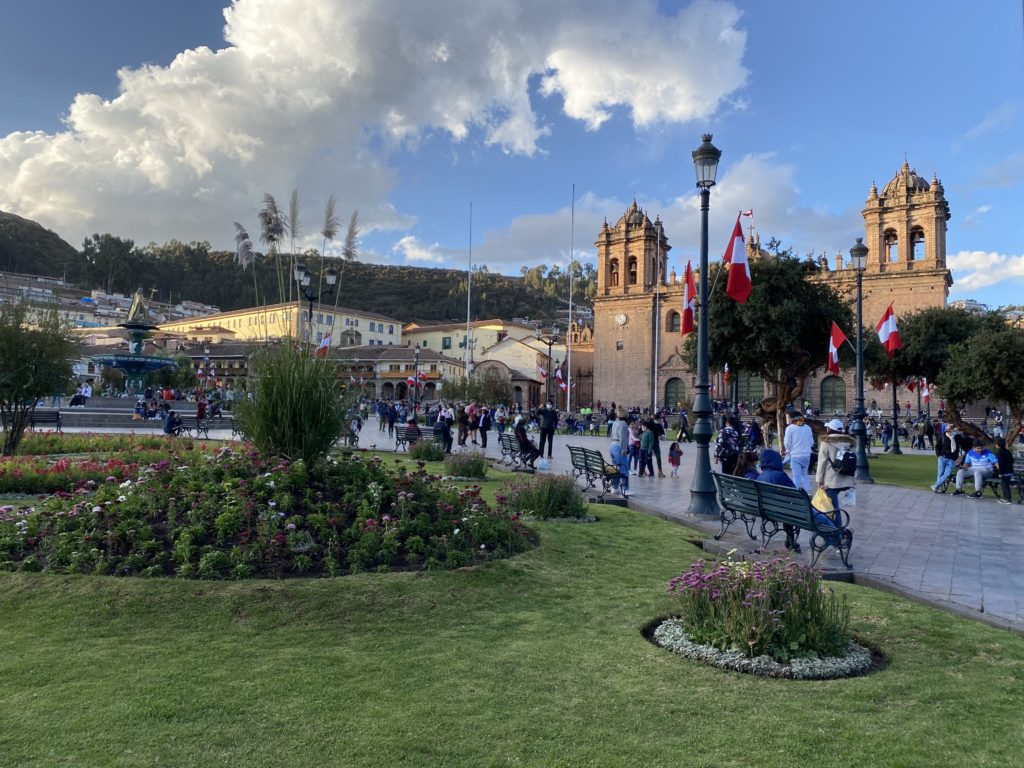Being abroad, it is sometimes hard to remember that many Peruvians—in fact, the vast majority—have never been to the United States and have a limited knowledge of what life is like in our country. Experiencing this has been humbling, and it has made me realize that I also have a very limited understanding of what life is like for the billions of people who live outside of the U.S.
At various points throughout my time here in Cusco, the topic of the United States has come up in conversation—with my professor, my host mom, various tour guides, and other foreign students who are neither Peruvian nor from the U.S. These conversations have been interesting because a few common themes came up, indicating what many people (or at least the subset of people I interacted with) think of when they think of the United States, but what caught my attention more was that almost every person brought up a topic or asked me a question about an issue in the U.S. that no one else did. This diversity of interests and questions reflects, I think, the unique position of each individual; as might be expected, a person’s interests and experiences are likely to influence what they consider most important.
I’ll start with the common themes that repeatedly arose when any discussion turned to the U.S. First, politics. During every conversation about the U.S., questions and comments about the political climate were a constant, and opinions and knowledge varied. Many people expressed more support for the current administration than the previous, but many more were relatively uninformed and were keen to ask questions. Second, COVID. Unsurprisingly, people were curious about the pandemic in the U.S. and the impact that it had. Many were surprised about and against the masking policies and compliance. In Cusco, it is still mandatory to wear masks everywhere; almost all of the cusqueños (people from Cusco) wear their masks diligently, while the majority of people who don’t are tourists. Third, immigration. Though there are relatively few Peruvians who immigrate to the United States, they still seem to express interest in the issue given the large number of Latin American citizens in general who do immigrate. Many acknowledged that the U.S. needs to address its immigration policy.
Now, the topics that were brought up by only one or a few individuals. There are many, and I won’t have the space to go through all of them, but I’ll describe a few and list the rest. First, gun violence. I had a fascinating conversation with a student from England and another from Italy, and they both shared their unapologetic disapproval of the way the U.S. handles gun rights and violence. Second, I had another fun conversation with my professor about professional and collegiate sports in the United States, and she liked the idea of having many different popular sports to watch instead of just one (soccer). Other specific topics that came up include religion, food, and technology.
Over the course of my time in Peru, I have learned much about its history and culture, but what I didn’t expect to learn was much about my own country. However, being surrounded by people who have never experienced being in the U.S., I have gained a new perspective of our country. The wonders of travel.
